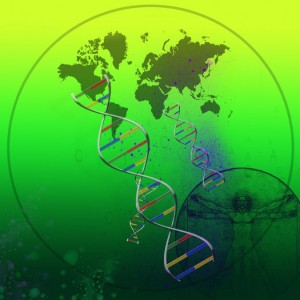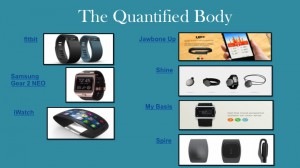 By Deepak Chopra This post is part of a series in which LinkedIn Influencers analyze the state and future of their industry. I have been in the health industry for the last forty-five years. When I was doing my residency and fellowship in various Boston hospitals our main attention was on sickness. For the most part this is still the case. The health industry is essentially a sickness industry. The business of sickness is what hospitals, medical equipment makers, pharmaceutical companies and physicians and surgeons thrive on. When I finished my training I realized that focusing on sickness would never make for healthy citizens, businesses, communities or nations. I, therefore, turned my attention to prevention of disease and lifestyle changes that could not only prevent illness but also even reverse it. In the last decade or so mounting research has shown how lifestyle changes, including exercise, stress management, and diet can prevent almost ninety percent (90%) of chronic illnesses in our society. It is now known that only five percent (5%) of disease-related gene mutations are fully penetrant. In other words, the gene expression of these mutations cannot be stopped unless a future drug or technology is developed to stop that expression. In most of the other gene-related mutations related to chronic disease, lifestyle can affect gene expression. We now know that Type 2 diabetes, cardiovascular illness in general, and many types of cancer are preventable. In addition almost every chronic disease is related to inflammation in the body and can be ameliorated through —modified gene expression. The Chopra Foundation has been collaborating with various academic institutions on how meditation, restful sleep, healthy diet, emotional and social well-being, exercise, breathing techniques, and healthy relationships can change disease-related gene expression, which in turn can dynamically change how we experience health or disease.
By Deepak Chopra This post is part of a series in which LinkedIn Influencers analyze the state and future of their industry. I have been in the health industry for the last forty-five years. When I was doing my residency and fellowship in various Boston hospitals our main attention was on sickness. For the most part this is still the case. The health industry is essentially a sickness industry. The business of sickness is what hospitals, medical equipment makers, pharmaceutical companies and physicians and surgeons thrive on. When I finished my training I realized that focusing on sickness would never make for healthy citizens, businesses, communities or nations. I, therefore, turned my attention to prevention of disease and lifestyle changes that could not only prevent illness but also even reverse it. In the last decade or so mounting research has shown how lifestyle changes, including exercise, stress management, and diet can prevent almost ninety percent (90%) of chronic illnesses in our society. It is now known that only five percent (5%) of disease-related gene mutations are fully penetrant. In other words, the gene expression of these mutations cannot be stopped unless a future drug or technology is developed to stop that expression. In most of the other gene-related mutations related to chronic disease, lifestyle can affect gene expression. We now know that Type 2 diabetes, cardiovascular illness in general, and many types of cancer are preventable. In addition almost every chronic disease is related to inflammation in the body and can be ameliorated through —modified gene expression. The Chopra Foundation has been collaborating with various academic institutions on how meditation, restful sleep, healthy diet, emotional and social well-being, exercise, breathing techniques, and healthy relationships can change disease-related gene expression, which in turn can dynamically change how we experience health or disease.  New technologies and monitors are being developed and are currently available that can quantify exercise, sleep, and stress in our body. As more of these technologies become available, the era of personalized medicine, bio regulation and self-care will be more accessible and practical. As one of the senior scientists at The Gallup Organization said, we are already seeing correlations between all aspects of our well being: personal/physical well-being, social well-being, community well-being, financial well-being, and career well-being.
New technologies and monitors are being developed and are currently available that can quantify exercise, sleep, and stress in our body. As more of these technologies become available, the era of personalized medicine, bio regulation and self-care will be more accessible and practical. As one of the senior scientists at The Gallup Organization said, we are already seeing correlations between all aspects of our well being: personal/physical well-being, social well-being, community well-being, financial well-being, and career well-being.
Total Well-Being – Slideshare
Algorithms are being developed for these correlations and it is becoming clear that total well-being, which includes all of the above, correlates with the future of persons, communities, businesses, and nations. Crime rate, hospital admissions, social unrest, economic sustainability, traffic accidents, and even the quality of leadership in a society depend on the total well-being of people in a society. Indeed, well-being is the number #1 trend in the world at the moment. My prediction for the near future for those interested in health and well-being is that physicians, nutritionists, health practitioners, physical therapists, nurses, massage therapists, counselors, life coaches, yoga teachers, and all those who are able to improve the health of their clients will be in high demand. I would urge those interested in this area to keep up with the advances in digital monitoring through wireless technologies of biological information. And learn how bioregulation and personal feedback systems will apply to prevention. I would also urge those interested in this area to keep up with the current developments in the area of mind body medicine, stress management, nutrition, yoga practices, and life coaching. Members of LinkedIn who have an interest in this area should start linking with each other and creating their own social networks to share both their knowledge and success stories so we can advance together in improving the health of our fellow citizens, our businesses, our community, our nations and the world. Photo: Author’s Own
